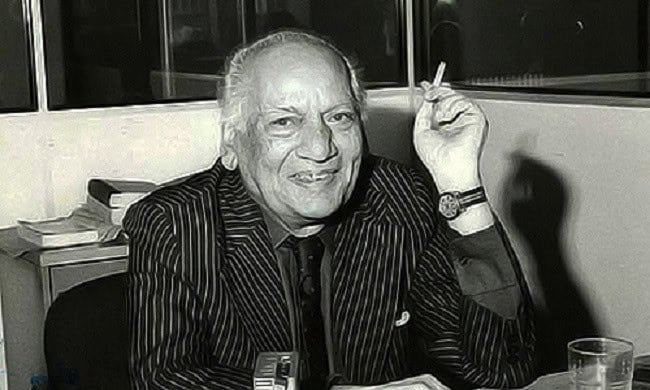LAHORE – Legendary Pakistani poet Faiz Ahmed Faiz, who is often dubbed as the voice of revolution, is being remembered on his 107th birth anniversary today.
Faiz Ahmed Faiz was born on February 13, 1911, in Sialkot, the birthplace of a poet of the east Allama Muhammad Iqbal.
After having completed his education, Faiz worked as a teacher, journalist, and a politician as well.
He also served in British Army before the independence of Pakistan and was promoted up to a rank of lieutenant-colonel.
However, Faiz resigned in 1947 to join Pakistan Times, a local newspaper of progressive narrative.
In 1951, Faiz became part of a failed coup in Pakistan and was charged in what is now called “Rawalpindi Conspiracy Case. He has sentenced imprisonment but was fortunate to be released later on.
After his release, he once again became a strong proponent of communism in Pakistan in the 1960s and 1970s. He also visited Russia for several times.
Later on, he became a close aide to then Pakistani Prime Minister Zulfikar Ali Bhutto, who headed a public campaign against President Ayub Khan in late 1960s.
His poetry has been translated into several languages including Russian and English. The major literary works of Faiz include Naqsh-e-Faryadi, Dast-e-Saba, Zindan-Nama, Dast-e-Tah-e-Sung, Mere Dil Mere Musafir and Sar-e-Wadi-e-Sina. Faiz Ahmed Faiz’s poetry has been translated into many languages, including English and Russian.
Faiz was also among the first ever official Pakistani delegation to visit Bangladesh. On conclusion of Bangladesh tour, he wrote his famous Ghazal “Hum Kay Thehray Ajnabi” on the insistence of Sheikh Mujib Urrehamn.
Faiz was awarded the Lenin Peace Prize in 1963‚ which was equivalent to the Nobel Prize in then’s USSR.
The government awarded country’s highest civilian award Nishan-e-Imtiaz to Faiz Ahmed Faiz in 1990 in recognition of his services in literature.
He died on November 20 in 1984 in Lahore.














